This March, the Oregon Center for the Arts is set to present a once-in-a-lifetime musical experience that will leave audiences breathless.
Terry Longshore, Southern Oregon University professor and Director of Percussion Studies, will premiere a new gong orchestra composition featuring the SOU Percussion Ensemble on Friday, Nov. 8, at the Ashland ScienceWorks Hands-On Museum.
The upcoming season of the Tutunov Piano Series promises a spectacular start – a grand prelude of prelude music featuring a performance by internationally acclaimed pianist Andrey Ponochevny.
Laurie Kurutz works to collect stories of burlesque, an art form where performers push the boundaries using their bodies and costumes. While collecting stories, she is sure to capture the diversity in this art, and will continue to capture more.
Learn more about the up-and-coming Dr. Alexander Gonzalez, such as his methods to create an environment of learning and creativity.
With football season just around the corner, pep bands everywhere are getting their chops ready for the big fall games. The annual SOU Raider Band Camp will hit the ground running with a one-week camp Sept. 16-21 under the direction of Bryan Jeffs and is seeking brass instrumentalists.
SOU Theatre presents:
What Happened While Hero Was Dead: a recent hit at Ashland New Plays Festival, Meghan Brown’s surprising play is a funny and thoughtful feminist riposte to Shakespeare’s Much Ado About Nothing, imagining the much mistreated Hero making better use of her off-stage time–afforded by the ruse of her death–than the original character managed. This time around, dutiful compliance is not on the cards. Directed by Holly L. Derr.*
Performance Dates are: February 16-18 at 8:00PM, February 23-25 at 8PM, Matinees February 25 & 26 at 2:00PM. SOU Black Box Theatre.
*This production is rated “R” and is for mature audiences only (age 17+); contains explicit sexual content and adult themes.
EMDA has been part of the Oregon Center of the Arts now for 10 years! This Blog is part 1 of a two-part series, along with posts giving Alumni a chance to give some feedback on their experience getting their degrees in EMDA as well as where they are now and how this amazing program got them there. Part 1 focuses on the history of EMDA, how it started and where it is going. Stay tuned for part 2!
After moving back-and-forth – between the East and West coasts, and between theater stage design and historic preservation – Sean O’Skea has settled into his role at SOU as a professor of scenic design, which he’s held for the past 13 years.
Oregon Center for the Arts Marketing Manager recently interviewed SOU Theatre major Alex Szabo, class of 2020 regarding their reorganization of the annual SOU OSPIRG fundraiser. OSPIRG is a campus political action group that enables students to lobby local, regional, and global political issues at the state level.
OCA
UNIVERSITY
COMMUNITY
The OCA Box Office Hours:
Tuesday – Friday
3pm – 6pm
And one hour prior to all performances
Email: boxoffice@sou.edu
Phone: 541.552.6348

Oregon Center for the Arts
1250 Siskiyou Blvd
Ashland, OR 97520
541.552.6101
oca@sou.edu
